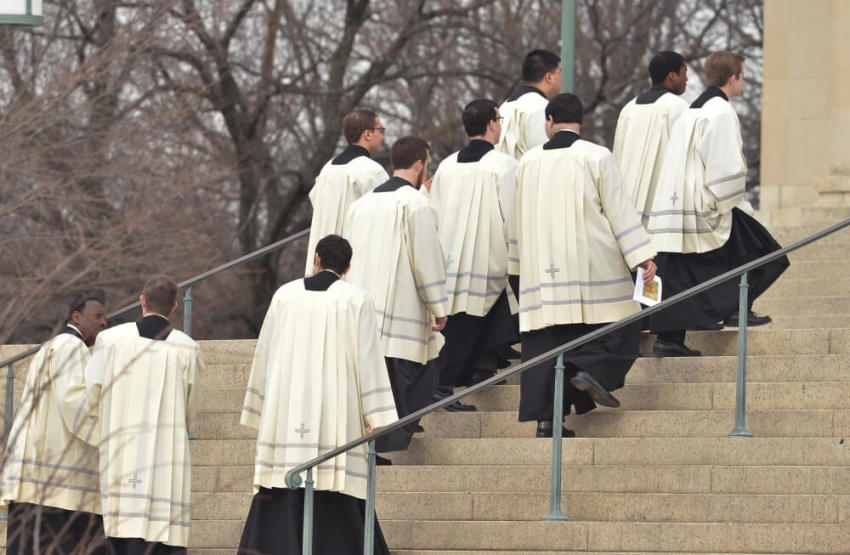Catholic Archdiocese of Washington sues DC mayor over 50-person limit

The Roman Catholic Archdiocese of Washington has filed a lawsuit against D.C. Mayor Muriel Bowser for putting an “unscientific” and “discriminatory” 50-person limit on houses of worship during the coronavirus pandemic.
The Becket Fund for Religious Liberty filed the lawsuit on behalf of the archdiocese in the U.S. District Court of the District of Columbia.
The lawsuit says the archdiocese “has worked with the District of Columbia to protect public health, including by voluntarily suspending public Masses in March."
And since in-person services resumed in June, the archdiocese “has demonstrated that people can worship God in a safe, responsible, and cooperative way,” the lawsuit continues. “This has led to an exemplary safety record: thousands of Masses, with zero known COVID outbreaks linked to the Mass. Yet as Christmas fast approaches, the District has imposed arbitrary 50-person caps on Mass attendance—even for masked, socially-distant services, and even when those services are held in churches that can in normal times host over a thousand people.”
The suit points out that for “public libraries, laundromats, retail stores, restaurants, tattoo parlors, nail salons, fitness centers, and many other establishments, the District imposes capacity-based limits, rather than hard caps.”
Bowser’s latest coronavirus order says worship services cannot have more than 50 people even if the capacity of a church is 10,000.
"We just think we should not be treated any differently and certainly not unfairly in comparison to other public places for attendance," said Archbishop of Washington Cardinal Wilton Gregory.
In October, a federal judge ruled against Mayor Bowser’s restriction on outdoor church services of more than 100 people, allowing Capitol Hill Baptist Church in Washington, D.C., to resume in-person outdoor services.
“It is for the church, not the District or this court, to define for itself the meaning of ‘not forsaking the assembling of ourselves together,’” Judge Trevor McFadden, a Trump appointee, wrote, quoting Hebrews 10:25.
Issuing a memorandum opinion in the case, the judge wrote: “The Court determines that the Church is likely to succeed in proving that the District’s actions violate RFRA. The District’s current restrictions substantially burden the Church’s exercise of religion. More, the District has failed to offer evidence at this stage showing that it has a compelling interest in preventing the Church from meeting outdoors with appropriate precautions, or that this prohibition is the least-restrictive means to achieve its interest. The Court will therefore grant the Church’s motion for injunctive relief.”
The judge also wrote: “The Church has consistently represented that it will take appropriate precautions such as holding services outdoors, providing for social distancing, and requiring masks. As explained, the District has not put forward sufficient evidence showing that prohibiting a gathering with these precautions is necessary to protect the public.”
Federal courts have overturned state restrictions that appear to single out churches or other houses of worship since last month’s ruling by the Supreme Court in a case brought by the Brooklyn Diocese and Orthodox Jewish synagogues against New York’s COVID-19 restrictions.
“Even in a pandemic, the Constitution cannot be put away and forgotten,” the court said. “The restrictions at issue here, by effectively barring many from attending religious services, strike at the very heart of the First Amendment’s guarantee of religious liberty.”



























